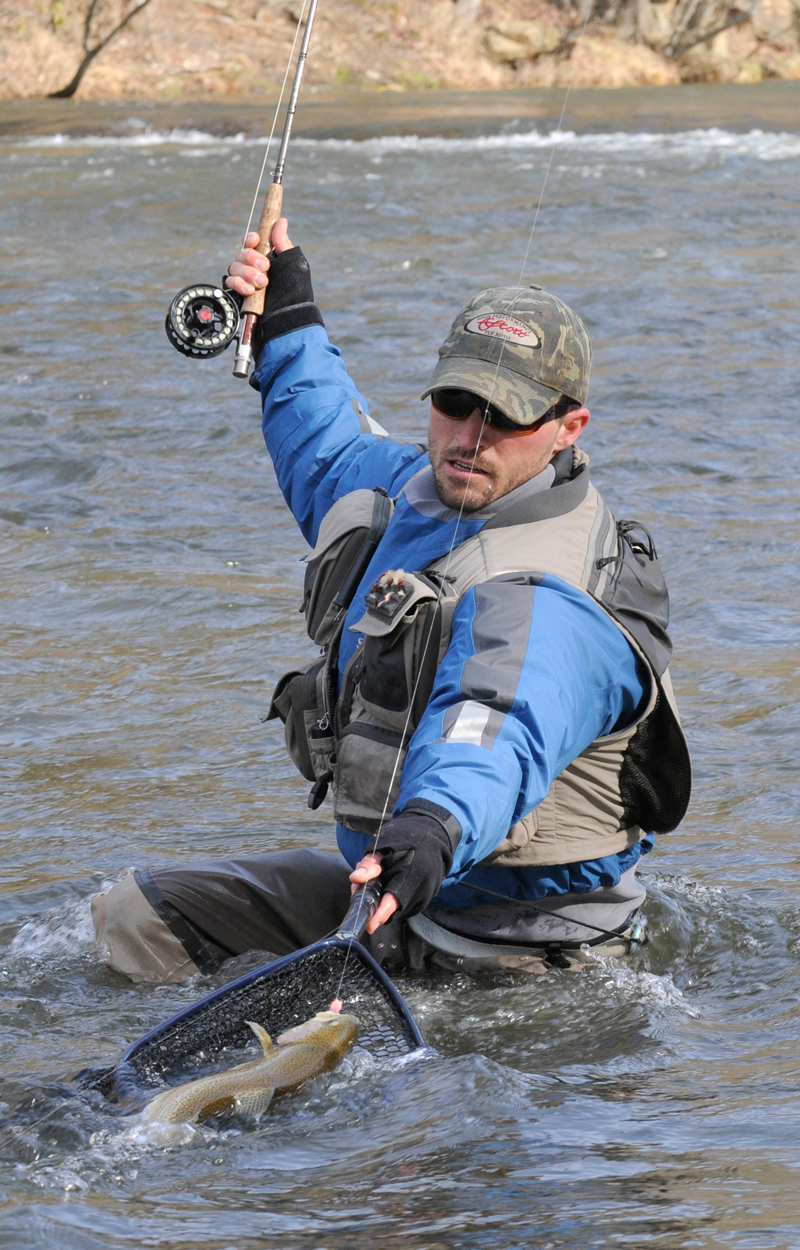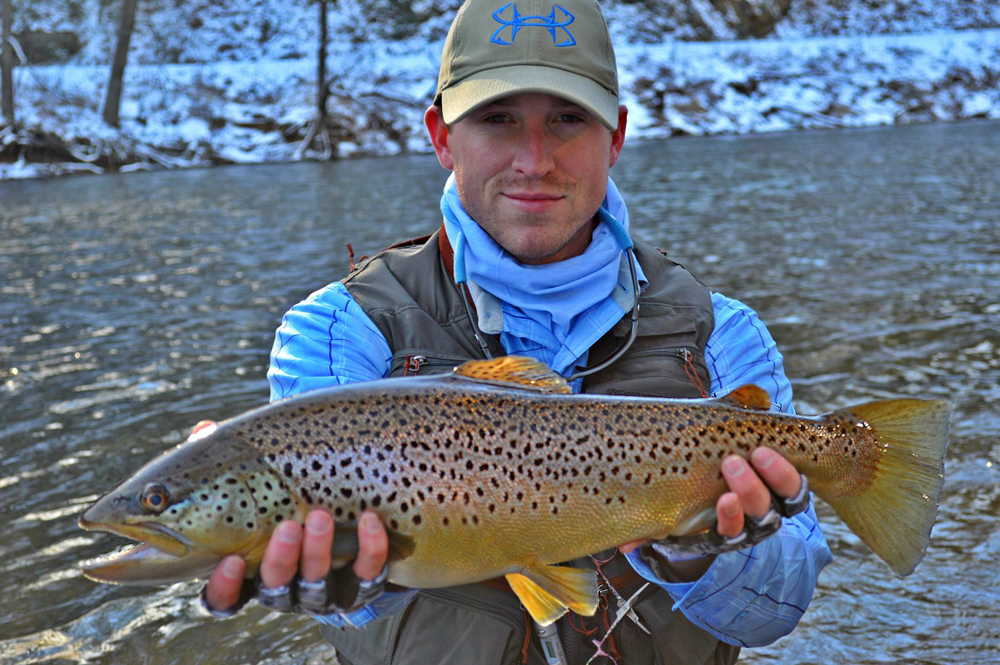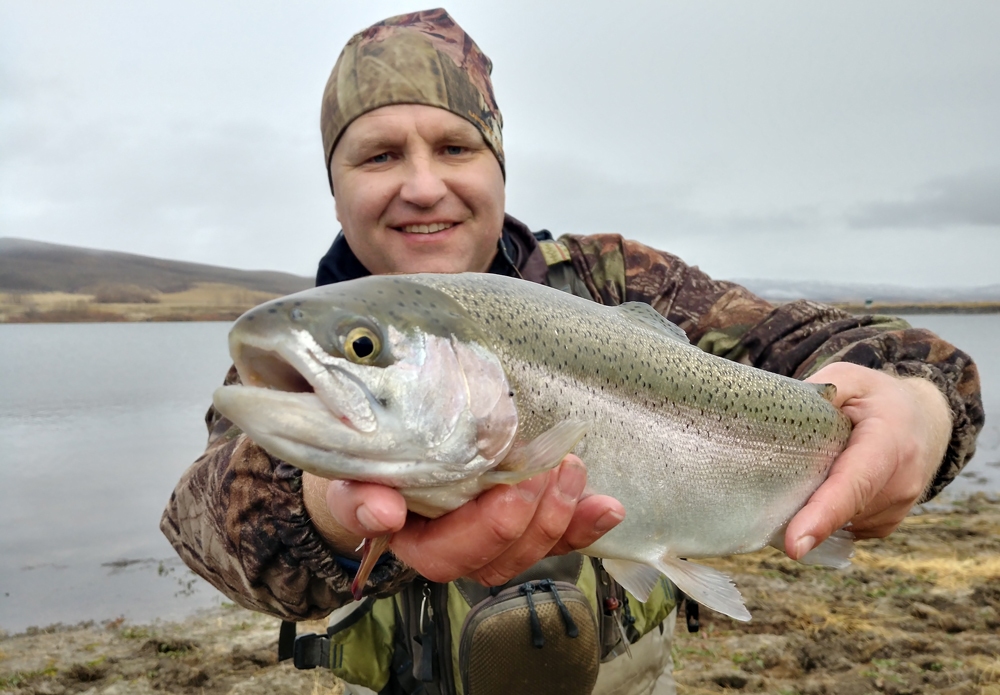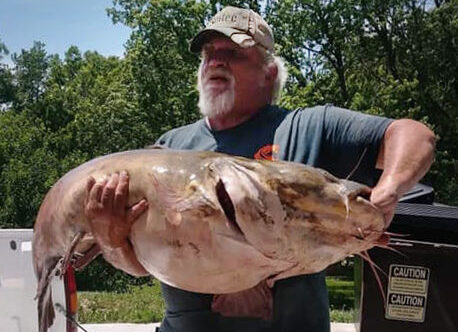Spring has arrived, and for many anglers thoughts turn to fly fishing. Names like the Madison, Bighorn, North Platte, and Beaverkill evoke mental images of rainbows and browns and matching the hatch. But if you heard Tuckasegee, Raven Fork, or Panthertown Creek, you would think, “Huh?”
Welcome to western North Carolina’s Fly Fishing Trail. Whether you are seeking quantity or size, open waters or small streams, stocked or wild trout, there is something for you on the Trail.
The WNC Fly Fishing Trail has its roots in Jackson County near the Great Smoky Mountains National Park. Designated by the state legislature as the premier trout fishing destination of North Carolina, the county boasts 4,600 miles of trout waters in 15 rivers and streams. Some are stocked by the state with about 93,000 trout annually. However, some streams on the Trail are wild-trout only.
North Carolina trout regulations provide seven different regulated waters, with the WNC Fly Fishing Trail offering opportunities on five of them. Several streams are home to native brook trout.

Rainbow trout like Sarah Spiro’s are stocked in many of the Trail’s streams.
Open-water enthusiasts will want to check out the Tuckasegee River, locally known as the “Tuck”. The heart of the Trail, it is the largest of the trout waters and flows most of the length of Jackson County, offering 13 access points for the angler who wants to float the river. There are also numerous access points for those who choose to wade fish.
If you want variety, the Tuck provides it. It hosts three regulated trout waters: Catch and Release/Artificial Lure, Delayed Harvest, and Hatchery Supported.
While the Tuckasegee anchors the Trail, there are 15 smaller streams that will appeal to the angler that likes to wade fish. Looking for a few trout for dinner? Your best bet is Hatchery Supported waters like Savannah, Scott, or Tanasee Creek. Hatchery Supported waters are heavily stocked during March for the April opener, and monthly stockings continue through June. Most of these trout are in the eight to 12-inch range, and there are no bait restrictions. Wild Trout designated waters are numerous, and this is where you are most likely to find the native brook trout.
Just visiting the area for a few days and want to introduce the kids to fishing? Check out the Mountain Heritage Trout Water. These specialty regulated waters are a cooperative effort between the NC Wildlife Commission and mountain municipalities to encourage trout fishing. Special licenses for these stretches of water within town are only $5 for a three-day permit. The Jackson County Fly Fishing Trail has three Heritage Trout Waters: Sylva, Dillsboro, and Webster.

Josh Stephens nets a nice rainbow trout on the Tuckasegee.
The Fly Fishing Trail’s recently redesigned website has all the information you need to get started. If you aren’t a do-it-yourself angler or are traveling without your own gear, seven guide services who are members can help you get on the water with all the equipment needed. The average price for a half-day wade trip is about $200. A map of Trail streams can also be downloaded from the website, and there is a weekly fishing report showing productivity, active hatches, and what flies and baits are successful.
If you plan on visiting western North Carolina this spring or summer, the Fly Fishing Trail offers trout fishing opportunities for the novice as well as experienced angler. North Carolina ranks fourth nationally in non-resident fishing licenses, with the excellent trout fishing along the Trail one reason for that ranking. If trout fishing is on your mind, you need to hit the Trail this Summer!

FLY FISHING IN THE GREAT SMOKY MOUNTAINS – HARDCOVER
In celebration of the 75th anniversary of the nation’s most popular park, this 448-page book features separate chapters with maps and photos on every major stream in the park. Buy Now




